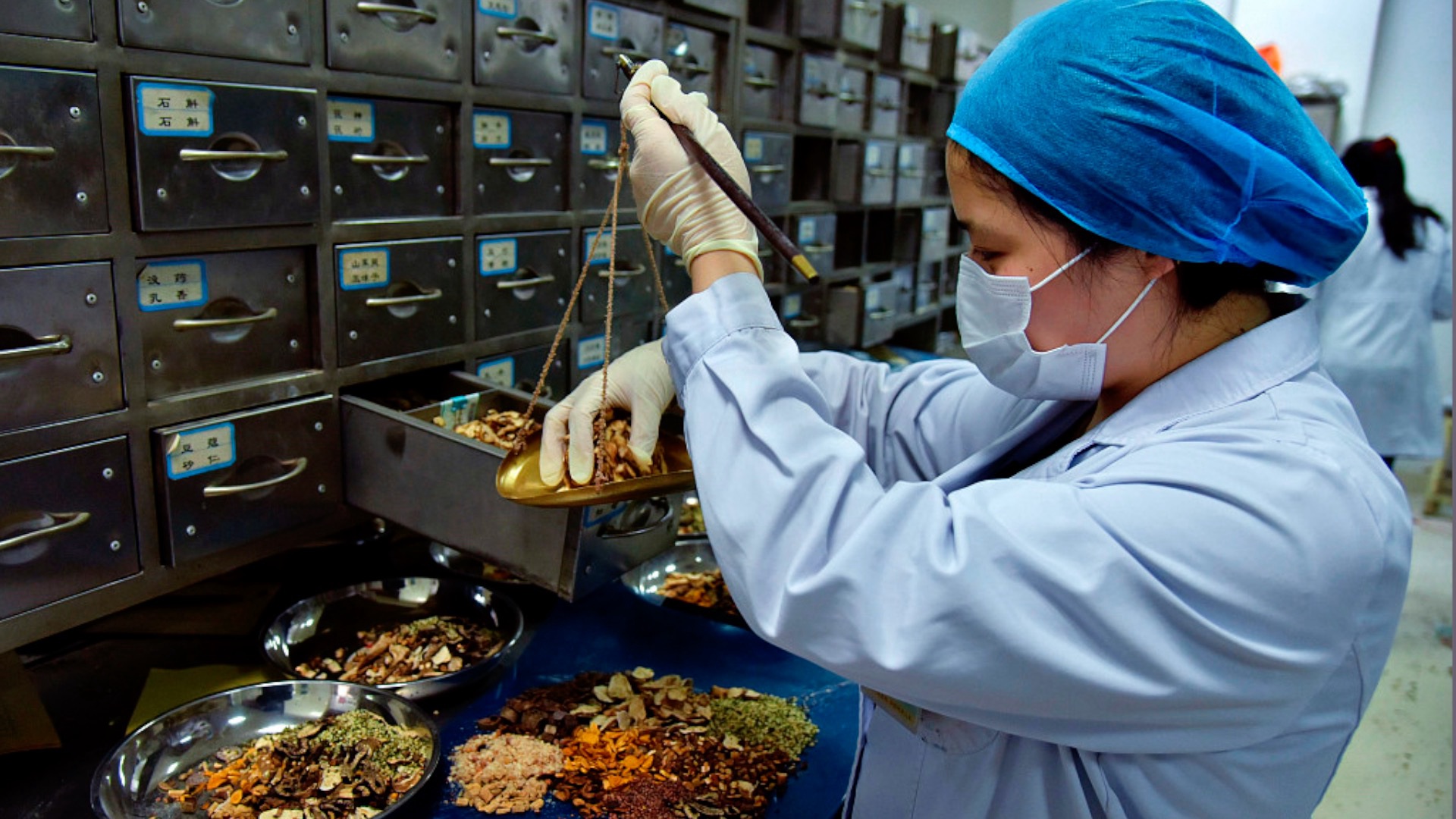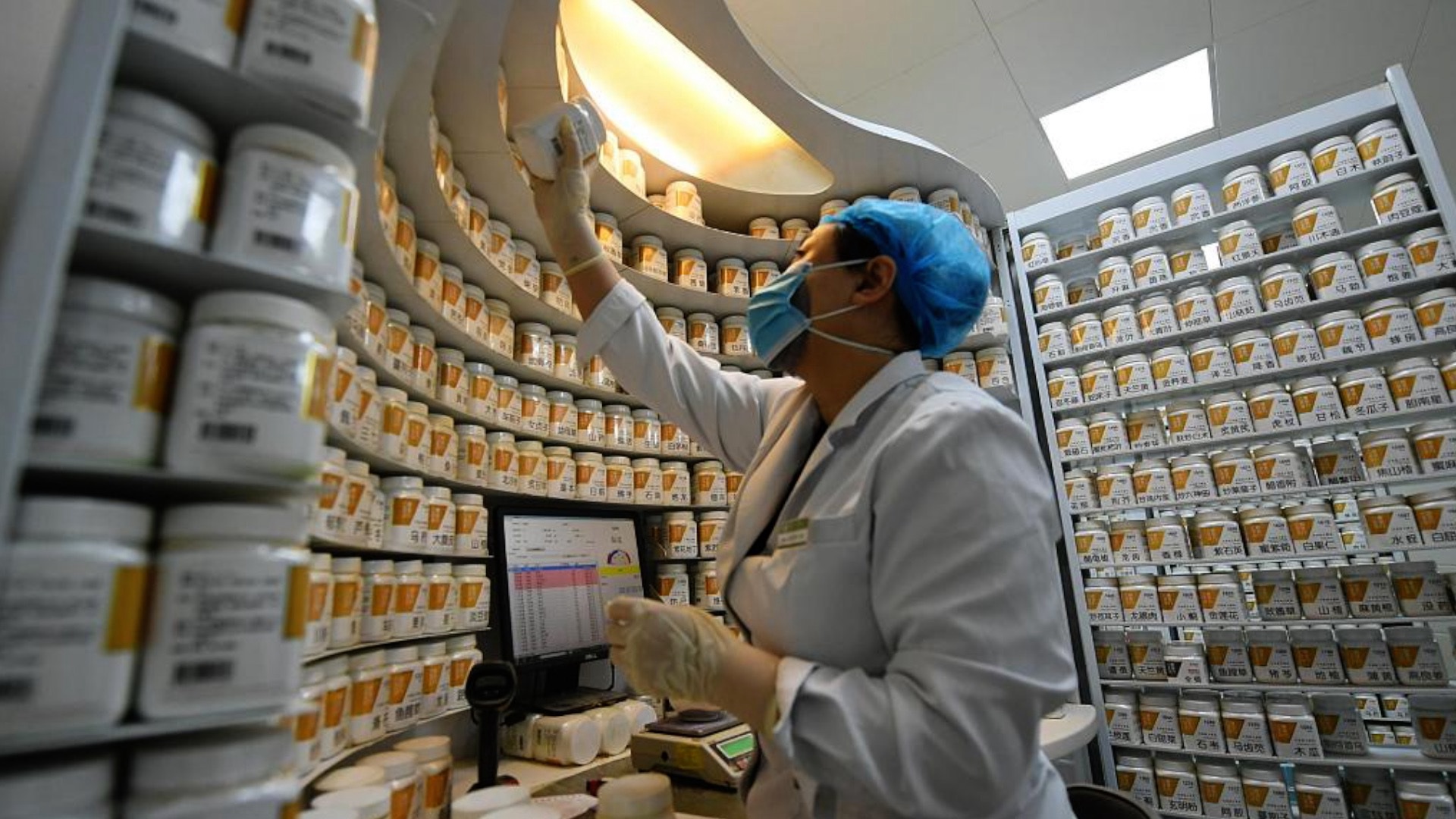01:54

The safety of the medicine we take is especially important now, while the world still grapples with the coronavirus pandemic. The world is using conventional Western medicine, but China has utilized the wisdom of traditional Chinese medicine (TCM), sometimes in tandem with Western medicine, in the fight against COVID-19. The question is: Can the standards and quality that govern TCM be upgraded so as to bring it to the global stage?
This was the main topic of the second online course series from CGTN Think Tank, focusing on taking Chinese medicine to the world. This week's panel featured five participants, all academics and experts in the field of Chinese medicine, who focused on quality control in China, Europe and Canada.
One theme that resonated during the discussion was the importance of consistency in regulations and standardization to improve products. Emphasis was also placed on how standardization can be achieved across international borders.
The Chinese position, presented by professor Zhou Hua of Macau University of Science and Technology, says there are certain factors governing how a specific herb or remedy is deemed to be up to snuff. Since around 2000, TCM has been tested for morphology, micrology and THC, Zhou says. The main concern is checking for toxic chemicals that may harm patients.
In order to reduce or eliminate toxicity, a herb is boiled in a saline solution. Since 2010, tests have been done for alkaline toxicity, or, taking a more traditional route, medicines could be combined with other herbs in order to reduce toxicity naturally.
Presenting the case for Europe were Graz University's Dr Rudolf Bauer and Dr Thomas Friedemann, CEO of ConPhyMed Pharmaceutical.
Bauer noted that, as far as the European system is concerned, the main problems with TCM boils down to adulterated or misidentified raw materials, contaminants, toxic constituents and improper processing. Another dilemma with the proper use and prescribing of TCM in Europe was a lack of knowledge among doctors, pharmacists and medical professionals.
This last point was echoed by Friedemann, who said the best way to eliminate a lack of knowledge is through a standardized global database in which Chinese doctors can share their knowledge with the world.
The idea of a database was brought up in a Q&A session with the panelists following their presentations. Asked by Friedemann how work could move forward on the database, which was only in the initial planning phase, Zhou proposed the use of China's National Library and even Alibaba. The e-commerce giant could use its AI to translate TCM data used in other Asian countries, like Japan and South Korea, the professor said.
Interactions between TCM and Western medicines
One question posed by an online listener was how could the interaction between Chinese herbs used in TCM with Western medicines be dealt with.
Edmond Lui, from Canada's Western University, pointed out that most literature on the subject of interactions, as well as studies, were theoretical and needed evaluation. Zhou, on the other hand, said TCM doctors would generally ask if a patient was taking Western medicine when making a prescription, thus implying a non-standardized way of checking.
When a patient that's prescribed TCM is taking Western medicine, Zhou says that doctors will normally tell the patient to take the Western medicine as prescribed before waiting an hour or more to take the Chinese medicine. In this way, patients could prevent dangerous interactions. For instance, Zhou notes that some herbs can increase the absorption rate for Western medicines, leading to side effects and complications.
Standardization and personalization
04:18

The standardization of TCM stands up to most arguments except the issue of personalization. Zhou's answer was that the database as well as global TCM organizations were working towards standardization of TCM practice.
Bauer recommended a multilevel process and strategy. The first part of this process would be the proper sourcing of raw materials, following with standardized extraction and processing practices, much like in Western medicine. But both he and Zhou warned that standardizing at the expense of diversity wouldn't be good, especially in regards to how different people across regions might react or utilize TCM differently.
In regards to policy, TCM has seen a boom during the coronavirus pandemic. Zhou said the World Federation of Chinese Medicine Societies has worked in association with TCM doctors and the Chinese government to help guide doctors around the world in their use of TCM to treat COVID-19.
Companies have also aided in the process as well, pointing towards a path of formulating Chinese medicine standards on the global stage.
In terms of future development, Bauer stressed a level production of raw materials, with a focus on sustainable cultivation. Friedemann, reiterating the potential of the database, cited a grading system for raw materials and quality control for their development into processed products.
(If you want to contribute and have specific expertise, please contact us at opinions@cgtn.com.)